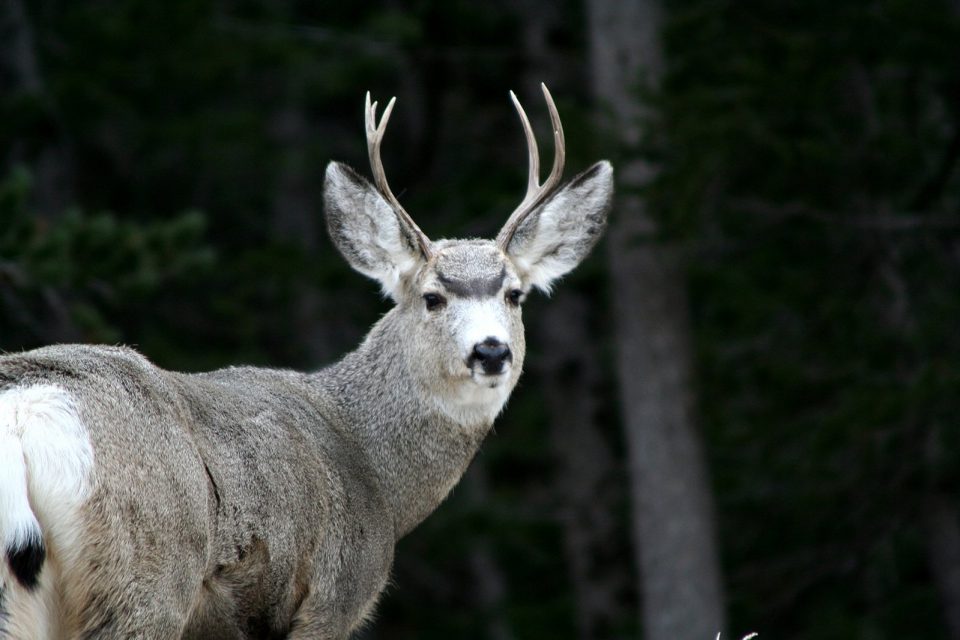Recently, an aerial deer population survey had taken place along the Manitoba-Saskatchewan border in the ongoing efforts to document cases of white-tail deer and mule deer potentially infected by Chronic Wasting Disease (CWD).
According to the Government of Canada website, ‘Chronic wasting disease (CWD) is a progressive, fatal nervous system disease that affects animals in the deer family. This includes deer, elk and moose. CWD is a prion disease, which is a rare, fatal, degenerative brain disorder.’
On November 1st, Manitoba announced its first confirmed positive case of CWD in the province, in a mule deer showing signs of illness west of Lake of the Prairies in Game Hunting Area (GHA) 22. In response, Manitoba enhanced surveillance and implemented evidence-based CWD control measures within the 10-km radius of the initial CWD finding with the following objectives: to better understand the level and current distribution of CWD in Manitoba, to prevent spread to other areas of the province, and to eradicate the disease from the affected area.
According to the ‘Final Summary Report of Initial Incident Response Action’ Report documented after the first sighting in November, a permit-based local community deer hunting opportunity was offered within the closed area from November 25 to December 12, 2021.
‘This controlled hunting opportunity was for local landowners, their families, and local Indigenous communities that actively hunt in the area. All hunters who were eligible to harvest deer had to abide by various permit conditions, including bringing all animals harvested to a hunter check station in Roblin where samples collected for CWD testing. This local opportunity allowed for some deer harvest in the area and contributed CWD test samples while controlling the movement of carcasses and high-risk material to other areas of the province. Hunting of moose and elk remained prohibited in the closed area,’ states the Report.
‘A total of 156 white-tailed deer kill permits and 152 mule deer kill permits were provided to hunters over the course of the opportunity, with each permit granting the authority to harvest up to three deer for a total allowable harvest of 468 white-tailed deer and 456 mule deer. During the 18 days this opportunity was offered, hunters brought 113 white-tailed deer and 19 mule deer to the hunter check station and samples were collected from all 132 deer for CWD testing.’
‘Lab results confirmed that 2 male mule deer harvested as part of this management action tested positive for CWD. Both hunters were immediately notified and the animals collected for proper disposal. The remaining 130 animals harvested during this opportunity tested negative for CWD and results were made available to the hunters. All hunters that harvested animals during this opportunity are reminded that only meat and properly handled hide and antlers can be moved out of the hunting area.’
Information gathered from the most recent survey and the results of recent management actions will guide future CWD control measures in this area in wild cervids (deer, moose elk) and elsewhere in the province (including caribou).
‘Based on a review of recent management actions, aerial population survey results and an ongoing review of mule deer management in Manitoba, additional sampling of mule deer in these areas is being pursued,’ the Incident Report continues.
‘Continued cooperation with local landowners, Indigenous communities, licensed hunters and key stakeholders will be critical in ongoing management, detection and surveillance of CWD. The department will also continue to maintain ongoing dialogue with wildlife management partners within Saskatchewan, Alberta, and other jurisdictions.
Manitoba has had proactive programming in place for prevention and surveillance of Chronic Wasting Disease (CWD) in wild cervids (deer, moose, elk and caribou) since 1997.
The program includes CWD surveillance, prohibitions to prevent potentially CWD-positive animals and material from entering Manitoba, as well as various regulatory requirements to minimize unnatural clusters of animals in high-risk areas (e.g. through feeding or baiting).
It is important to note that if an ill animal in deer, moose and elk populations to contact their regional conservation officer, or call the TIPS line at 1-800-782-0076.


